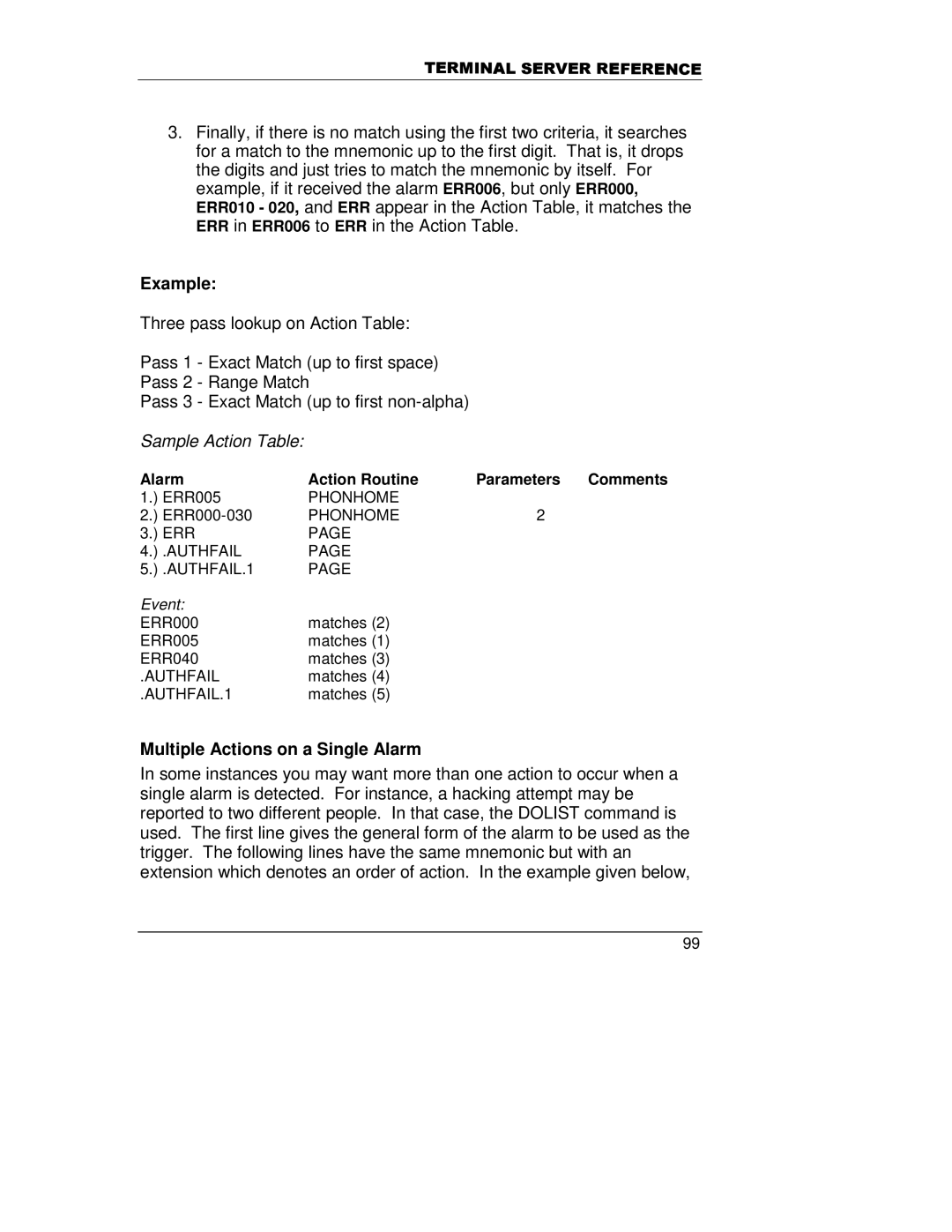
7(50,1$/6(59(55()(5(1&(
3.Finally, if there is no match using the first two criteria, it searches for a match to the mnemonic up to the first digit. That is, it drops the digits and just tries to match the mnemonic by itself. For example, if it received the alarm ERR006, but only ERR000, ERR010 - 020, and ERR appear in the Action Table, it matches the ERR in ERR006 to ERR in the Action Table.
Example:
Three pass lookup on Action Table:
Pass 1 - Exact Match (up to first space)
Pass 2 - Range Match
Pass 3 - Exact Match (up to first
Sample Action Table:
Alarm | Action Routine | Parameters Comments |
1.) ERR005 | PHONHOME |
|
2.) | PHONHOME | 2 |
3.) ERR | PAGE |
|
4.) .AUTHFAIL | PAGE |
|
5.) .AUTHFAIL.1 | PAGE |
|
Event: |
|
|
ERR000 | matches (2) |
|
ERR005 | matches (1) |
|
ERR040 | matches (3) |
|
.AUTHFAIL | matches (4) |
|
.AUTHFAIL.1 | matches (5) |
|
Multiple Actions on a Single Alarm
In some instances you may want more than one action to occur when a single alarm is detected. For instance, a hacking attempt may be reported to two different people. In that case, the DOLIST command is used. The first line gives the general form of the alarm to be used as the trigger. The following lines have the same mnemonic but with an extension which denotes an order of action. In the example given below,
99
